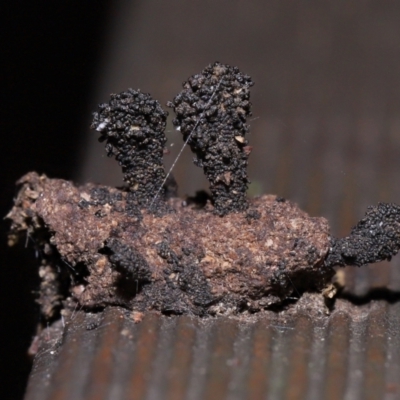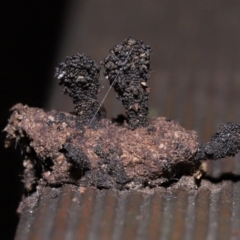Clubs/stalks on wood or on leaf/twig litter sightings
Most often seen are species of Calocera. The fruitbodies, though rarely over a centimetre tall, are yellow and usually turn up in large numbers on dead wood. They are rubbery to jelly-like in texture.
Macrotyphula fruitbodies are fleshy, likely to be found on twig/leaf litter and are long and thin – sometimes close to 10 centimetres long but no more than 2 millimetres wide.
Xylaria fruitbodies are stiff and black, though sometimes with a white dusting. They may be under a centimetre to several centimetres.
Warning
If you see a cluster of short black clubs or spikes growing from a gall-like swelling (especially on Leptospermum or Melaleuca) you may have the asexual Harpographium state of Septobasidium clelandii (https://canberra.naturemapr.org/Community/Species/Sightings/15389),a scale insect parasite.







































































































































